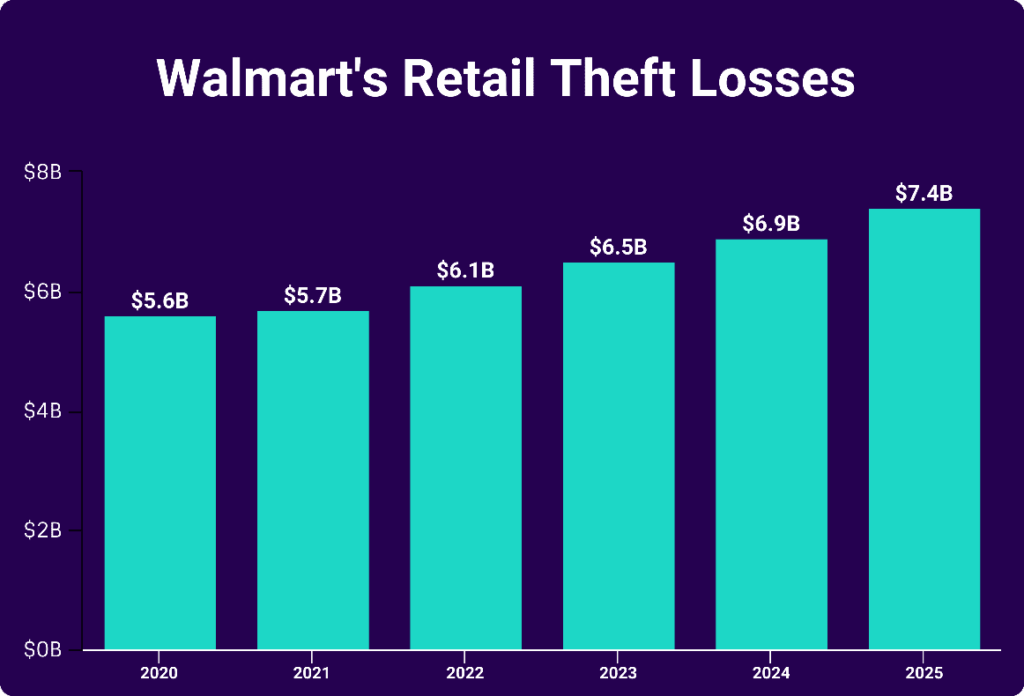Corporate Resistance to a Post-Scarcity Reality

As a human race, we’ve never been more prosperous. Never before has the ability to produce food, housing, clean water, technology, entertainment, and more, been so readily available and been achievable with such little labour. Despite this however, we seem to continue to operate in a way that perpetuates, and then punishes those who circumvent the barriers put in place to access these basic tenants of life.
The absurdity of this sprung to life in my brain while I was watching this video by an incredible creator I just recently discovered named Benn Jordan.
In it, he describes how these cameras from a company called “Flock” are licensed to private stores, municipalities, and to police departments for thousands of dollars per camera, and then the footage from those cameras is kept by the company and licensed out to the same PDs and private security for even further profits. It frequently costs tax payers millions in policing budgets every year, and it’s use in law enforcement frequently ends up costing even more as it’s rate of false positives adds up to multiple multi-million dollar lawsuits from arrests or public harm caused by police assaulting drivers who were mistakenly targeted by bad AI systems.
Millions of tax payer dollars per year into PD budgets, only to implement a half-cocked surveillance state, which then backfires and causes even more money to be drained out of taxpayer pockets to pay for the fuck ups with no tangible evidence of a reduction in crime.
As the absurd costs of the fallible technology was cited at me, I couldn’t help but just go through the thought exercise of what it would cost to just pay for the losses. Like, what if we could just solve the crime at the source with abundance? I’m fully of the mindset that it’s a person’s material conditions that influence their likelihood to engage in “antisocial behaviour”, so what if we just bought every car thief a $10,000 car? Pawn it, drive it, who cares. You’ve got a ride, go improve your life with it. In Vancouver, that would run us about $6.6m compared to an annual policing budget of $429m. Less than 2% of the money we give to cops and we wouldn’t have to think about auto crime anymore. Extending this further, if we took every person who committed petty theft under $5000, and just gave them $5000 instead – $65m. Just 15% of what we give cops in a year.
While the thought exercise above is not bulletproof by any means – obviously just buying vehicles en masse for would-be criminals is riddled with pitfalls and externalities – it is useful in demonstrating the true societal cost of crime. Surveilling, tracking, arresting, jailing, and prosecuting crime, is always going to be more expensive than just improving people’s lives to a degree where they don’t need to commit it in the first place. I’ve got a TV. Two in fact. You’re not ever going to catch me out there smashing the windows of Best Buy to get a new one. I’m taken care of. So why – when baby formula is one of the most shoplifted items in North America – are we not just giving moms baby formula?
Imagine a world where an at-risk teenager was able to just be granted a full-ride college scholarship, just in the name of crime prevention. That investment alone could prevent a crime that may cost tens of thousands of dollars in property damage, or worse, a life, and the salaries of every social worker, cop, detention officer, judge, bailiff, stenographer, record keeper, public defender, etc on this persons way to a prosecution. And this is born out in countries with better and more comprehensive social safety nets. The crime rate isn’t just low in Finland cause it’s cold. Punishing people is expensive. Usually more expensive than whatever they could stand to steal or destroy. So why bother?
Well the punks who need a shower will probably recognize this iconic quote from political scientist Michael Parenti.
“I could demonstrate to you that every single bank robbery, that in every single case practically, the cost of the police was more than the actual money that the robbers took from the bank. Does that mean, ‘Oh, you see, there’s really no economic interest involved, then. They’re not protecting the banks. The police are just doing this because they’re on a power trip, or they’re macho, or they’re control freaks, that’s why they do it.’ No, of course it’s an economic… of course they’re defending the banks. Of course, because if they didn’t stop that bank robbery, regardless of the cost, this could jeopardize the entire banking system. You see there are people who believe that the function of the police is to fight crime, and that’s not true. The function of the police is social control, and protection of property.”
Parenti’s quote here hits on the real reason why enforcement is so cherished. He precludes this quote by discussing why the United States needs its interventionist, militaristic outreach (imperialism) in other countries, particularly central America, and Nicaragua, and emphasizes that these actions are designed to be system sustaining. Capitalism cannot be sustained without the violence it exerts to enforce its absurdity. In order to continue extracting resources, it serves notice to it’s vassal states that everything can and will be taken from them at any given moment. It needs fear – and as such, we arrive at the microcosm of this phenomena on display within the heart of empire. If the citizenry realized that all the theft they could muster would only serve to add a minor dent to the balance sheet of the wealthiest in our society, they might begin to see that power as retrievable. The wealthy might garner less sympathy – less subservience – and the tides of labour, of organizing, of unionizing, may start to shift out of their favour.
Walmart saw over $6b in losses due to theft in 2022. But you know what they also saw? Over $611b in revenue that same year, and $143b in pure profit. A 4.1% loss in it’s overall profit, for one company, accounted for 14.7% of all retail theft across the entirety of the United States. Which means that if Walmart were a person with any semblance of a blood-pumping organ, it could choose to make only three quarters of it’s yearly profit, and simply pay for every single retail theft in a country of 350 million people. Walmart could still be a $100b/year company, and every single one of the thefts that has worked the American media into a tizzy could just be made whole. Whenever they tell you that theft is out of control and that stores are closing because of it, remember these numbers.

But what if they did just pay it all away? Well then the system that benefits them to the tune of trillions begins to show its cracks. The artificiality of its scarcity begins to give way as a mirage. The unnecessary and overbearing violence required to protect its goods appears more barbaric and unhinged. The charts and graphs explaining the supply and demand of it all, begin to dissolve as the lines and axes float away in every which direction.
The basic premise that we can’t pay for something comes into question. Every Conservative who’s ever rebuked a social program with “but that will raise taxes” or “how will we pay for it?” will forever be silenced. The money is there, the resources are there, and the labour is not only there, but getting to be a less necessary piece of the equation by the day. The only thing holding us back is the overhead. It’s the dragons hoarding wealth and refusing to part with even the fractions it would take to quell the unrest.
Remember when Elon Musk sarcastically quipped that critics of billionaires shouldn’t expect him to solve the world’s problems with his wealth because really it was just an infeasible logistics problem, and if anyone could produce a plan to solve world hunger with his money, he’d liquidate Tesla stock and fund it? Then remember when the UN Food Program director provided that plan, and Musk didn’t do jack fuck? Then remember when he did less than jack fuck and instead liquidated 7 times that amount of Tesla stock to buy Twitter and turned it into a fascistic hellhole. Pepperidge Farm remembers. Pepperidge Farm of course being a subsidiary of Campbell Soup Company which sees over $9b of yearly revenue, and could also probably pay to eliminate world hunger or retail theft if they so chose.
If our value systems were aligned with human experience, if our measures of success were how many people had homes, or how little hunger there was, or how little we worked, or just how much we enjoyed living, we could exist in such a different world. If somehow those measures were held in global regard, imagine the discussions that would go into installing these insane AI cameras. “Why would we license these cameras across the city for $5m/year? We could just pay for transit to be entirely free, and begin construction on a new metro line. Car theft would be pointless.” or “Why would we install these AI security cameras and staff up a team of security guards, when we could just create a community food bank fully stocked with baby formula so that young mothers don’t need to steal it?”
The current allocation of funds only makes sense as a mechanism for generating a repressed lower class. For maintaining cycles of poverty. The camera is not there for your protection. It’s not for recovering your stolen car, or catching your killer, or for analyzing traffic to make your commute safer. It’s for ensuring that you only get the slimmest piece of the pie possible, and not a crumb more. It’s for ensuring that the abundance we’ve generated over centuries does not find it’s way out of the hands of the powerful. It’s for preventing the re-appropriation of the goods we produced. And most importantly it’s for the Luigis of the world. To let them know that no matter how well they think they’ve planned it out, they will be found and made an example of.

I think it’s easy to see the innocuous camera staring you down at a traffic light, or at the Walmart self-checkout, and believe that it’s fine. That these aren’t a concern for you. To believe that you have nothing to hide. But take stock of where you’re at in life. How many paychecks could you miss before missing a rent payment? How many until your diet may be impacted? If you’ve got a mortgage, how many interest rate bumps or market adjustments could you withstand before your house costs more than it’s worth? If you’re in America, what degree of medical incident could you withstand in your current situation? And could you withstand even half of that if you lost your job and insurance? How long could you survive without work before you begin to look at less legal methods of surviving?
As late-stage capitalism wrings out the last few droplets of value into the bottomless goblets of it’s owners, where do you fit into the picture? Are you an owner of capital? Do you hold ownership of land, of factories, of homes that people need? Because if you don’t, then as the next recession arrives (as it cyclically will in 4-5 years), you may well be that person looking to reclaim the value stolen by them within the system. You may be that car thief, or that looter, or just that single mother trying to feed their baby, and unlike the recession-era outlaws who built up oft-romanticized speakeasies and bootleg operations, there will be an army of bots paid for with your excess labour value, waiting to ensure that no matter how much abundance there is, that you can’t have it. Not unless you pay your tithes, regardless of the imbalance between societies needs, and the fractional labour effort required to satisfy it.
We are post-scarcity today. Every mouth could be fed. Every person could have a roof over their head. More than that, it could be comfortable. We could still have movies to watch, games to play, travel to do, and nature to enjoy. You can still have your jetski Kyle, calm down. And we could do it all while working fractions of the hours we currently do. All it takes is some sanity in the distribution. A few less megayachts and cruise ships. A few less private jets and football stadiums. A few less military bases and nukes. A few less cops and cameras.
Don’t ever let this facade have you believe that there isn’t enough to go around. That by taking according to your needs, that you’re starving someone else. The system as it stands is strategically holding the basic tenants of life from you at arms reach to ensure that you’re forever running forward, but make no mistake – you’re on a treadmill. It’s only when you step off that you’ll truly be moving forward, and when you’ll see that around the corner, is a trove big enough for everyone.